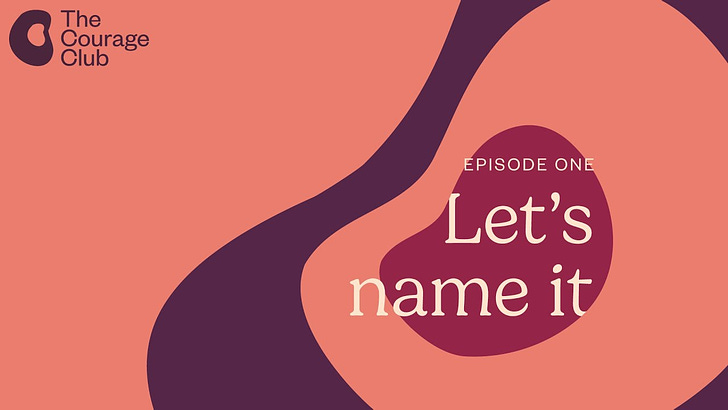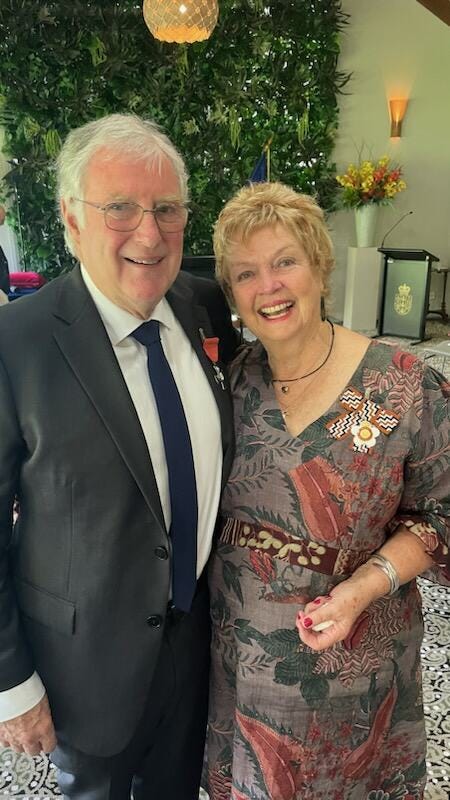Kia ora Awhi friends,
How are you coping? It’s been a big few weeks….well months really. There have been a lot of ups and downs. Our wonderful kaitiaki Anna McMillan said it well on her Instagram when she said: “I’ve been digging deep to stay out of burnout and keep my head above water”.
Very relatable! We’re going to share some more from Anna below. But we wanted to share some small wins.
We’ve had some great media coverage about parents and carers this month.
Emily Writes and Katy Thomas were on Nine to Noon speaking about how the last six months have been for the community. You can listen here.
Also on RNZ, Rachel Malcolm-Swindells and our kaitiaki Colleen Brown talked about ‘caring for the carers’. It’s a powerful and quite harrowing listen, it’s so important that people hear what life can really be like for carers.
RNZ also had Carers NZ on - Kiwis caring for disabled family members being pushed to the brink at the beginning of August.
We will keep working on opportunities to get your stories out into the world.
You can also listen to and share the videos made by The Weekly of Katy’s interview:
Let’s get back to Anna. We love the advice she gives here:
Self care can feel like a trigger word in our carer community. Many of us just don’t have the luxury of time, money and support or the resources needed. Adding ‘self care’ to our already overflowing plates just feels like another responsibility we have to take on.
Parenting and caregiving are already challenging, but right now things are feeling overwhelming and uncertain. You are not alone in feeling like this.
Focusing on small, manageable actions can make a big difference in supporting your mental and emotional well-being.
Find Glimmers
A glimmer is the opposite of a trigger. It’s a small moment of joy, connection, or peace that reminds you the world is still good. Notice them, hold onto them. They matter. It could be feeling the sun or a cool breeze on your skin, the smell of fresh coffee or flowers, a hug, or a moment of laughter that brings some lightness.
Gratitude
Building on just noticing the glimmers you can take it further by writing them down or taking a photo to remind you. Try capture one a day, it doesn’t have to be big—just something that made you feel okay in the moment.
Mini Mindfulness
Take just 2-3 minutes a day to focus on your breathing or simply be present by engaging your senses. Even short moments of mindfulness can help calm your nervous system. Journey To Wellness is a place I find lots of regulation gems
Take the next small step
Making small decisions when things feel out of control helps regain a sense of agency and has a grounding effect. Make minor choices when the big picture feels over whelming. Maybe it’s connecting with a friend, getting out for a five minute walk, a kitchen dance party, screen time so you get a minute to rest, ticking one job off your ever growing to do list, or reaching out to the community Awhi Ngā Mātua Parent to Parent and Carers NZ.
You already give so much. You deserve moments that are just for you.. It also means you can show up stronger for those who depend on you.
One year of The Courage Club
It’s almost one year since The Courage Club podcast came out. You can still listen or watch on Youtube and all of the resources for The Courage Club are still available.
What is The Courage Club? It’s a club for parents of Deaf, Disabled, Medically Fragile, and Neurodivergent parents to be part of - a club where we have the courage to talk to our kids about sexual harm and violence. Here’s how the team behind The Courage Club explain it:
What we’re going to be talking about on The Courage Club are not easy topics, but that’s exactly why we want to talk.
The problem is that in Aotearoa, our Deaf, disabled and neurodivergent tamariki are at increased risk of sexual harm. At the same time, because that fact hurts, it’s really hard to speak about it. So we wanted to create a space where we could begin the conversation. We wanted to make something where we, as parents, can courageously talk about the hard stuff: keeping our Deaf, disabled and neurodivergent children safe when it comes to preventing child sexual abuse.
We’re going to cover how to manage naming the awkward stuff, helping tamariki understand their body and their needs, navigating carers and visitors in and out of the home, and building the foundations for their positive sexual well being and identity. So, take courage. You’re the ones who care the most. You’re the ones who are there the most. And you’ve told us you need support to have brave conversations.
In her latest newsletter
wrote about respite care and how important it is. We wanted to share a bit of what she shared - read more here.I am the director of Awhi Ngā Mātua. I came on as a contractor but eventually it became an enormous part of my life. I couldn’t leave. I became the director. The idea of Awhi was that it was for parents of disabled, medically fragile and neurodivergent tamariki and it was run by those parents too. It is a community.
We are guided by initial focus groups run way back in 2019, where families told us what they needed. We carry their stories with us - we carry those parents and carers with us. One parent said her only social interaction was road patrol.
I think about her often. I think about the families with no respite since March after the government cut and restricted the criteria for funding for support for carers.
I think about how I feel today, after two days of respite. I feel like I can go on. Like I can show up. Not just for my family but for you, for my community, for parents who need support.
Before our wedding, before we had our babies and before we knew what life would look like, my husband and I chose a reading that we thought summed up what our relationship was to us.
It’s by Michael Blumenthal and it’s called A Marriage.
You are holding up a ceiling
with both arms. It is very heavy,
but you must hold it up, or else
it will fall down on you. Your arms
are tired, terribly tired,
and, as the day goes on, it feels
as if either your arms or the ceiling
will soon collapse.
But then,
unexpectedly,
something wonderful happens:
Someone,
a man or a woman,
walks into the room
and holds their arms up
to the ceiling beside you.
So you finally get
to take down your arms.
You feel the relief of respite,
the blood flowing back
to your fingers and arms.
And when your partner’s arms tire,
you hold up your own
to relieve him again.
And it can go on like this
for many years
without the house falling.
We had no idea then just how much we would cling to this poem and how it would be our approach not just to marriage but to parenting and survival too.
Media round-up:
A mother's raw story of struggle to get care for a child with a significant, unlabelled disability
Disabled man's family have to let support staff go after funding stops
For Mental Health Awareness Week, Health NZ removes supports for child mental health via
Policy to pay disabled workers as little as $1 an hour continued despite warning
Yes, calling someone ‘mentally disabled’ causes real harm
The Last Word: The Government’s attacks on the disabled are relentless
Government urged to listen to disabled people
Finally, in very exciting news - Last week, Awhi kaitiaki Colleen Brown, MNZM, was presented with her Companion of the King’s Service Order medal! This honour recognises her service to people with disabilities, local government, and the community.
This recognition of Colleen’s amazing mahi is truly well-deserved!
We love you Colleen! Thank you for everything!
Take care friends. We hope you are safe and well. And we are always available to contact via DM or by replying to this email.
Please let us know if you’d like us to include anything in our Awhi newsletter.
Arohanui, the Awhi team.











